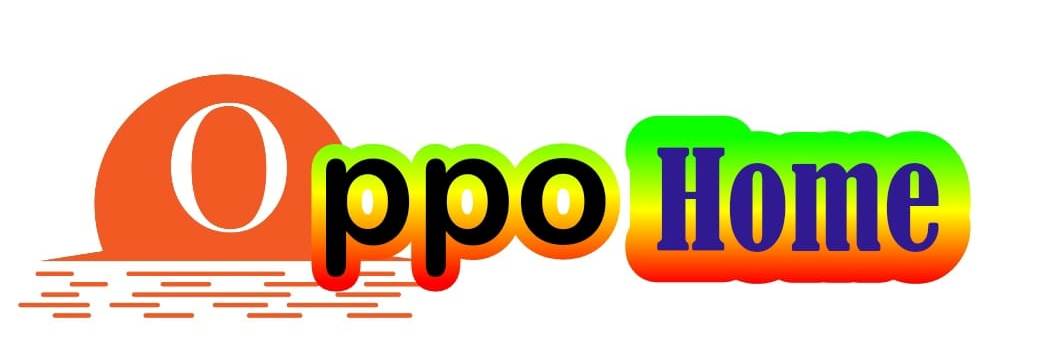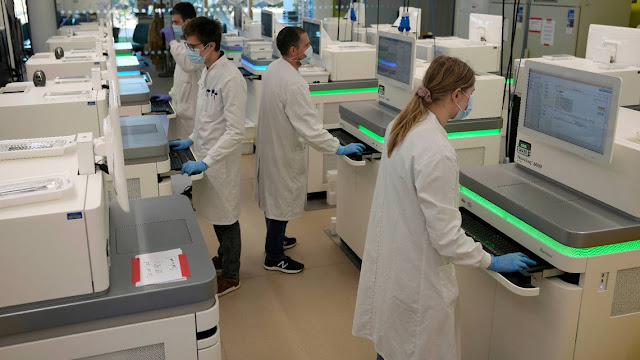UK infection hunting labs look to support worldwide variation organization
The climate control systems murmur continually in the lab at the Wellcome Sanger Institute, countering the hotness lost by columns of super advanced sequencing machines that work seven days seven days investigating the hereditary material of COVID-19 cases from all through the U.K. The lab is one illustration of how British researchers have industrialized the course of genomic sequencing during the pandemic, reducing the time and expense expected to produce a remarkable hereditary unique mark for each Covid case investigated. That made the U.K. a world forerunner in COVID-19 sequencing, helping general wellbeing specialists track the spread of new variations, foster immunizations and choose when to force lockdowns. Be that as it may, presently specialists at the Sanger Institute in Cambridge and labs around the U.K. have another mission: sharing what they've realized with different researchers on the grounds that COVID-19 has no respect for public lines. The omicron variation presently powering another influx of contamination all over the planet shows the requirement for worldwide participation, said Ewan Harrison, a senior exploration individual at Sanger. Omicron was first distinguished by researchers in southern Africa who immediately distributed their discoveries, giving general wellbeing specialists all over the planet time to get ready. Since hazardous transformations of the infection can happen anyplace, researchers should screen its improvement wherever to ensure everybody, Harrison said, attracting a corresponding to the need to accelerate inoculations in the creating scene.
"We should be arranged all around the world,'' he said. "We can't only sort of put a fence around a singular nation or regions of the planet, since that is definitely not going to cut it.'' Britain focused on sequencing right off the bat in the pandemic after Cambridge University Professor Sharon Peacock recognized the key job it could play in fighting the infection and won government subsidizing for a public organization of researchers, labs and testing focuses known as the COVID-19 Genomics UK Consortium. This permitted the U.K. to activate scholarly and logical ability developed since British analysts initially distinguished the synthetic construction of DNA in 1953. The consortium is currently backing endeavors to reinforce worldwide sequencing endeavors with a preparation program zeroed in on scientists in non-industrial nations. With subsidizing from the U.K. government, the consortium and Wellcome Connecting Science intend to offer web-based courses in testing, information sharing and working with general wellbeing organizations to assist analysts with building public inspecting programs. "There is imbalance in admittance to sequencing around the world, and (the task) is focused on contributing toward endeavors that nearby this gap,″ the gathering said, declaring plans to offer the principal courses early this year. By sequencing however many positive cases as would be prudent, analysts desire to distinguish variations of worry as fast as could be expected, then, at that point, track their spread to give early alerts to wellbeing authorities.
The U.K. has provided more COVID-19 arrangements to the worldwide clearinghouse than any country other than the U.S. what's more has sequenced a greater level of its cases than any huge country around the world. Specialists in the U.K. have submitted 1.68 million successions, covering 11.7% of announced cases, as indicated by information assembled by GISAID, which advances fast sharing of data about COVID-19 and this season's virus. The U.S. has provided 2.22 million arrangements, or 3.8% of its announced cases. Most nations are doing some sequencing yet the volume and speed fluctuates significantly. While 205 wards have imparted successions to GSAID, the greater part have sequenced and shared under 1% of their complete cases. In the course of recent years, labs around the U.K. have refined the method involved with social event and examining COVID-19 examples until it takes after without a moment to spare assembling techniques. Explicit conventions cover each progression - from swab to arrangement to announcing - including frameworks to guarantee that provisions are perfectly positioned at the ideal opportunity to keep the work streaming. That has helped cut the expense of dissecting every genome by half while decreasing the turnaround time from test to succession to five days from three weeks, as indicated by Wellcome Sanger.
Expanding sequencing limit resembles building a pipeline, as indicated by Dr. Eric Topol, seat of creative medication at Scripps Research in San Diego, California. As well as purchasing costly sequencing machines, nations need supplies of substance reagents, prepared staff to complete the work and decipher the arrangements, and frameworks to guarantee that information is shared rapidly and straightforwardly. Setting up that large number of pieces has been quite difficult for the U.S., not to mention emerging nations, Topol said. Genomic sequencing "as an observation apparatus overall is fundamental, in light of the fact that large numbers of these low-and center pay nations don't have the sequencing capacities, especially with any sensible turnaround time," he said. "So the possibility that there's some assistance there from the Wellcome Center is staggering. We really want that." At Wellcome Sanger's best in class lab, tests show up continually from around the country. Lab associates cautiously set up the hereditary material and burden it onto plates that are embedded into the sequencing units that unravel each example's one of a kind DNA code. Researchers then, at that point, break down the information and contrast it with recently recognized genomes with track transformations and check whether recent fads are arising. With COVID-19 continually changing, the need is to check for new more hazardous variations, including those that might be impervious to immunizations, Harrison said. The data is basic in assisting analysts with adjusting existing antibodies or foster new ones to battle the steadily evolving infection.
Expanding sequencing limit resembles building a pipeline, as indicated by Dr. Eric Topol, seat of creative medication at Scripps Research in San Diego, California. As well as purchasing costly sequencing machines, nations need supplies of substance reagents, prepared staff to complete the work and decipher the arrangements, and frameworks to guarantee that information is shared rapidly and straightforwardly. Setting up that multitude of pieces has been difficult for the U.S., not to mention non-industrial nations, Topol said. Genomic sequencing "as an observation device overall is fundamental, in light of the fact that a large number of these low-and center pay nations don't have the sequencing capacities, especially with any sensible turnaround time," he said. "So the possibility that there's some assistance there from the Wellcome Center is fabulous. We want that." At Wellcome Sanger's best in class lab, tests show up continually from around the country. Lab colleagues cautiously set up the hereditary material and burden it onto plates that are embedded into the sequencing units that unravel each example's interesting DNA code. Researchers then, at that point, break down the information and contrast it with recently recognized genomes with track changes and check whether recent fads are arising. With COVID-19 continually transforming, the need is to check for new more perilous variations, including those that might be impervious to antibodies, Harrison said. The data is basic in assisting analysts with adjusting existing immunizations or foster new ones to battle the always evolving infection.
Harrison adulated South Africa for its work on the profoundly contagious omicron variation and rapidly imparting its examination to worldwide specialists. Tragically, numerous nations then, at that point, limited travel to South Africa, hurting its economy. Harrison said agricultural countries should be urged to distribute information on new variations unafraid of financial repercussions in light of the fact that rebuffing nations like South Africa will just hamper data sharing that is expected to battle COVID-19 and future pandemics. "The key thing, clearly, is this consistent routine observation," he said. "What's more I think the main advance currently is expanding that around the world.'' For now, it additionally implies loads of work, consistently, to keep watch. However, such cautiousness has its advantages, said Tristram Bellerby, the lab's director. "It's been great to see that our work has been significant in tracking down these new variations,'' he said. "I trust eventually it could help us in escaping the present circumstance we find ourselves in.″


Comments
Post a Comment